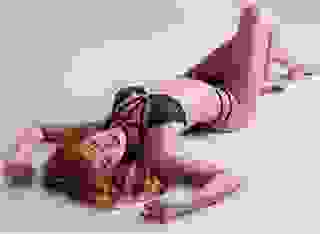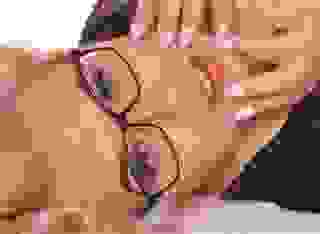Note: You can change font size, font face, and turn on dark mode by clicking the "A" icon tab in the Story Info Box.
You can temporarily switch back to a Classic Literotica® experience during our ongoing public Beta testing. Please consider leaving feedback on issues you experience or suggest improvements.
Click here"Is there news about anything going on in Hawaii?"
"No, but I'm happily assuming that no news is good news -- at least in this case. It does appear that both Tacoma and Olympia were hit by one of Rainier's lahars, and that Portland has sustained major damage from pyroclastic flows, but no one is sure whether these came from Mount Hood or St. Helen's. Astoria, near the coast, was hit by the tsunami and apparently was severely damaged. The USGS in Oregon just confirmed that the San Andreas fault did let go just moments after Mount Rainier, so going to California represents a huge gamble, as at least two rather large population centers have probably been cut off from outside help, and that means tens of thousands of people will be starving within a matter of days. And you must remember, Neal, that with all the volcanic ash circulating in both the upper and lower atmosphere, it's quite likely that all aviation will be grounded, and conceivably for a very long time."
"So, you won't be flying to London anytime soon, will you?"
"No, of course not, but with any luck at all I'll find suitable medical facilities for Akira in Hawaii."
"And for yourself?"
But then Patrick just smiled -- as he took an envelope from his back pocket and handed it over to me. "In the event of my death, you are to open this and carry out my final instructions."
"And your daughter? You said her name is Akira?"
Pat nodded. "That's correct. Take care of her, Neal, at least until she's well enough to make her way in the world on her own. Will you do that for me?"
"Why me, Patrick?"
"I don't know. Maybe because it's time you did."
"Time I did? What on earth do you mean by that?"
"You can't go through life with just a dog by your side, Neal. And if you don't like people, you need to find out why. If you don't trust them, you need to find someone you can trust. And if you can't care for other people, then perhaps you simply need to tie an anchor around your feet and jump overboard," he said -- and with a straight face, I might add.
"People are evil, Pat..."
"Yourself included, of course?"
"Of course myself. We're evil, all of us, every single one of us."
"But aren't we also good?" Pat sighed. "I mean, surely you must concede that we are each capable of acts of extreme goodness? So, are you telling me that you've just discovered the dualities inherent in mankind? Now? After fifty-three years?"
"Goodness is just another word for exercising self-interest, Pat. And how the hell do you know...?"
But he ignored my anger and carried on: "Oh? So helping these stragglers out here by carrying them to Hawaii is in your self-interest? And is keeping Max out here under the present circumstance in your best interest? Come on, Neal. Think it through. Think about what you're really trying to say."
"Well then," I replied casually, "taking your daughter is certainly not in my best interests, right?"
"If you're silly enough to think that way, then yes, give me the envelope. Go about your wretched life and get on with your self-obliteration, but don't do it anywhere around me." And as he said this he snatched the envelope from my hands and turned to leave, but first he turned and knelt beside Max.
But I still wasn't buying his line. "But isn't that exactly what you're doing, Pat?" I said to him as he knelt. "Getting on with your self-obliteration?"
Yet kneeling there as best he could, he rubbed Max's chin and whispered in his ear, then he stood and looked at me. "You'll forgive my predilection for falling back into the greasy clutches of the classics, but I find that here I must, one last time: 'Therefore, send not to know for whom the bell tolls, it tolls for thee.'" And with that said, Barnacle Bill turned away from us and walked back to Haiku's cockpit, then he disappeared down below. And me, not quite knowing what else to do, well, I walked back to the rail and hopped aboard Tiki, and Max followed along, too -- yet I sensed he did so reluctantly this time.
And so we set about getting all the people off the smaller boats that had gathered around Haiku, and of the small flotilla out there, only a half dozen of us were capable of the almost three thousand mile crossing to Hawaii. One guy said he'd try his luck and head up to Vancouver, and then a small motorboat came alongside Tiki. I saw a family of five huddled in the twenty-foot Boston Whaler; two adults and three kids, dad at the wheel and his family huddled under a blue plastic tarp with a few life jackets holding it in place. They had been bailing water from their little boat with two plastic buckets, and the kids looked frozen and exhausted.
The man in the Whaler handed me their lines and I tied them off amidships, then I lifted the kids from their mother before I helped her climb aboard. After I helped the man up on deck I could see he was a wreck, his hands were shaking and his eyes as red as plums as we cast off his boat's lines; the poor soul watched his lifeboat drift off into the night -- just as a tiny sailboat with a lone woman behind the tiller came up alongside. She appeared quite young and adventurous looking, and it seemed she'd already packed all her belongings into a large mountaineer's backpack. Now she motored up alongside then simply stepped across, and her frail little sailboat drifted away, carried along by Tiki's spreading wake until it too disappeared in the night.
Within ten minutes everyone on smaller vessels had migrated to one of the larger sailboats, and I set the autopilot to steer 232 magnetic then I went below to fire up the stove and make hot chocolate. Those kids sure looked like they needed it, and I knew I had a box of brownie mix down there somewhere.
The Last Part of the Tale
By our fourth day out we were getting a much better picture of the damage up and down the west coast. It had been, unfortunately, one more hot summer, and lava ejected from Mount Hood had set off forest fires that were spreading over central Oregon and southern Washington state. More troubling was the news that Mount Shasta, a long-dormant cone volcano located in northern California, had been upgraded from Potential to Imminent Eruption status by the US Geological Survey, and while no one was saying why all these volcanoes were suddenly letting go, the obvious conclusion was that forces released by the Cascade fault were, somehow, forcing a huge increase in upwelling lava. No one had been able to get close enough to Mount Baker, north of Seattle, to check the status of that volcano, and there had been little contact with anyone in the Seattle region since Rainier's massive eruption.
Ash was obscuring most of the Pacific Northwest from satellite observation, but that wasn't the case in California. Imagery was being posted on NASA's Earth Observatory website almost hourly now, and bit by bit the damage in California was becoming alarmingly clear. Fires were raging east of Oakland and south of San Francisco, and the first detailed high-resolution images of downtown San Francisco revealed catastrophic damage. Los Angeles was a different story, however.
The west side of LA seemed relatively unscathed and LAX appeared largely intact, but the downtown area had been obliterated and fires south of there appeared to be out of control, literally, as no emergency services could be detected in image after image. Both San Diego and Santa Barbara appeared untouched, though no one was getting through -- with the lone exception being radio contact with the huge Navy base in San Diego.
Barnacle Bill and, for that matter, everyone on Haiku, remained quiet as we digested the news. Carolyn had taken on six strangers from the flotilla which was probably a good thing because a couple of them were experienced sailors. Haiku had been sailing under staysail and a deeply reefed main ever since just so the much larger boat wouldn't run away from the rest of us. Still, what I remember most about our fourth day out was waking up and finding that Haiku had left us. I could still just make her out through binoculars, but she was under full sail when she sailed out of radar range later that afternoon.
I picked up satellite imagery of the latest weather information that evening and the storm we'd feared had been pushed east by the North Pacific High, and when I woke at dawn on our fifth day out I swore as I headed topsides, only to be greeted by a mirror smooth ocean that seemed to stretch out to infinity. Only now it was hotter than Hades on deck, and Max really, really didn't like that. I put his large astroturf mat up on the foredeck, which was where I wanted him to do his business when we were at sea, but he looked at me like I was crazy. I went out in my bare feet and soon found out why: one step on our teak decks was enough to fry my feet and his paws, so we dropped down to the swim platform and he dutifully did the deed down there after I soaked the teak with seawater.
Life onboard was of course like nothing I'd ever expected it to be. The first and most important reason was the Gutierrez family, all five of them. Jesus and Matilda had fled Guatemala, and he'd been working as a security guard at a small boat builder's yard north of the city that night. He'd been living with his family in a small trailer on the grounds, but when he heard the tsunami warning he'd gathered his family and hopped in the first boat he found, a little Boston Whaler skiff the boatyard used from time to time. He'd seen Haiku motoring by on the sound and raced out to join the flotilla, and now here they were, on their way to Hawaii with the rest of us. Fortune favors the bold, I reckon?
Heidi Mathieson was the second reason I found for my unexpected new life, perhaps because she was the strangest creature I'd ever run across. She'd graduated from college just a few months before all this broke loose, and she had just snagged a boat-sitting job when the owner took off for some kind of job assignment in Singapore or Malaysia, she wasn't sure which. She walked around like she owned everything in sight yet she doted on the Gutierrez kids, and Max looked at her like he couldn't make up his mind about her, which was really kind of strange if you stopped to think about it. His tail didn't swish when she called his name or fixed his dinner, and most of the time he simply kept away from her -- as much as he could given the limited space we shared. I tended to follow his lead, too, as I found her bossy demeanor more than annoying.
Matilda, on the other hand, was pure joy. She inventoried the supplies we had on board to cook with then simply took over the galley, as she loved to cook like most babies take to breathing, if you know what I mean. She'd been born to cook, and she lived to see smiles on the faces of those she fed. I managed to whip up some brownies the first morning the kids were onboard, but I otherwise tended to eat salads night and day; I even served Max's dinners of chopped veggies and canned chicken on a bed of fresh chopped kale, so he was a salad fiend too.
But now that Matilda was in charge of the galley things had changed. I had stowed a bread maker away somewhere, but she found my supplies of flour and corn meal and went nuts making homemade tortillas, and soon we were putting away huevos rancheros for breakfast and enchilada tortes for lunch or dinner. Jesus caught a few fish so we had fish tacos and ceviche, and life fell into new routines of epicurean bliss.
Until the wind returned, anyway. And after sitting becalmed for two days the wind felt invigorating. Until it didn't. On the second day of this new, much colder wind, it really piped up, blowing a solid 25 knots indicated out of the northwest, and then the wave height began increasing until we were surfing along the crests of eight footers for hours on end. Steering under these conditions was tiring, and even though Heidi had some offshore sailing experience, Tiki's 43 feet of heavy displacement was often too much for her. Thankfully, Jesus proved to be an eager learner and an able helmsman, and he seemed grateful to have some purpose onboard other than caring for his children. Yet something was wrong, and we all felt the change now.
Even though it was mid-summer it was only 50 degrees out, but soon with the increased wind, it was growing seriously cold. Tiki has a solid dodger, or a hard covering over the companionway, and while this provided effective cover when sailing into the wind it did nothing to obstruct wind coming from astern. The hydraulic autopilot installed on Tiki was of little use now, too, though the Hydrovane self-steering gear was managing well enough, but it was getting too cold to stay outside for very long to keep an eye on these things.
Yet as I watched our position advance across the chart I kept waiting to feel a little more warmth in the air -- but day after day our hoped-for warmth simply wasn't showing up to the dance. Five hundred miles out from Oahu the temperatures were continuing to fall, and we hadn't seen the sun in almost two weeks. No one onboard was attuned enough to the sea to understand what that meant, but one morning Heidi came up into the cockpit and told me I needed to go watch CNN for a while.
And even though it was July and New York City should have been broiling, it was snowing there today. Chicago had been blanketed in volcanic ash, but now the ash had a nice, foot-and-a-half-deep layer of fresh snow on top. Duluth reported ice was forming on Lake Superior and the Detroit River was frozen solid, something that had rarely happened over recent winters.
And then the BBC reported that all air traffic was still grounded worldwide, though National Guard units were arriving by rail in remote parts of southern California and in Reno, Nevada. Relief convoys were forming up to try and reach the Bay Area and Los Angeles, and railway repair crews would follow the troops in.
And then, when we were still 200 miles off the northeast tip of Oahu, snow started falling on Tiki's deck.
+++++
I didn't know what to expect next. Nothing made sense.
But approaching Kailua at four in the morning I saw city lights burning through the fog and snow, and even though Diamond Head was lost in the clouds Honolulu was still burning bright. Calling the harbor master at the Ala Wai Boat Harbor on 16 brought an immediate reply from the US Coast Guard to stay off 16 unless absolutely necessary, so I did the next best thing. I powered up my iPhone and saw I had five bars, so I called the after-hours number, expecting to be told the marina was full.
But no, far from it. The harbor master advised that every boat capable of making the trip to Polynesia had either already departed or soon would and that there were dozens of vacant slips ready and waiting.
"Has a large ketch made it in? Name is Haiku?"
"Sure has. You want me to put you right beside her?"
And that was one less worry to deal with, even though it was beyond surreal to motor into a yacht harbor in Hawaii in the middle of a full-blown nor'easter, complete with driving snow and with ice forming on the rigging. And why was the likelihood of finding a snow shovel on Oahu suddenly weighing heavily on my mind?
But when I pulled into the slip indicated by the harbormaster, I saw Patrick standing in Haiku's wheelhouse, staring at me as I jumped onto the dock to tie off our lines. And then, after three weeks at sea, it hit me. I was on land again. The world wasn't heaving underfoot, and I felt queasy, almost seasick -- because this place wasn't rocking and rolling.
Heidi came up, with her backpack already packed, and she hopped off, gave me a brief hug then walked off into the snow. You know, like ho-hum and thanks for the lift. Well, disliking her had come easily enough, but not so Jesus and Matilda, or even their kids. I could barely comprehend a world without Matilda in my galley, and Jesus was such a kind soul the thought of losing him too was unsettling. I'd come to rely on them both, I knew, perhaps as much as they were relying on me, but now that we were here they had absolutely no idea what to do, and they had almost no money to see them on their way.
But Patrick came out on deck and asked me to come over to Haiku as soon as I finished up with formalities at the harbormaster's office, so I asked Jesus to just stay onboard for the time being, then I marched off through the snow to find the office.
Despite the harbormaster's usual role of maintaining their marina, they are usually a good source of local information about all kinds of things in the immediate area, notably jobs, and apparently, the main commercial wharves in Honolulu were short-staffed and most local hotels were in need of cooks, so that was one problem down. Next on the list, if Jesus was willing to work security at the marina they'd have a roof over their head, so that was another problem solved, but did I really want them to leave? Well, I'd pass along the information and let them decide what was best for them.
So I walked back out to Haiku and was stunned when I saw the tracks in the snow I'd made a half hour before were now filled in, while drifting snow was piling up against dock boxes, and right then I really understood how rapidly the planet's weather patterns were shifting. I was wearing my full foul-weather suit and would freeze to death out here in an hour, but this was Hawaii, in July, and it almost felt like I was having some kind of out-of-body experience. And I guess that explained the expression on Barnacle Bill's face when I climbed up on Haiku's deck and walked into the pilothouse.
"Are you alright, or still in a state of shock?" he asked.
"Shock, I think," I managed to say as I took the towel he offered and started to dry the ice from my unshaven face. "It feels kind of like the North Atlantic...in January."
He smiled. "We're at about the same latitude as Havana. Can you imagine snow in Cuba?"
"No, and I don't want to, either. How long have you been here?"
"Two days. And don't ask. We've both been to the local cathedral, which is what hospitals are called these days, I think. Akira is doing very well."
"And you?"
"I'm here. I suppose that counts for something. How was...your crew?"
"Couldn't have been better. Yours?"
"Grateful, and they graciously departed as soon as we docked. Carolyn is now an accomplished sailor, and quite proud of herself."
"You look better, Patrick. Maybe getting out in the sea air agreed with you."
"Maybe. We were growing alfalfa sprouts so I was eating my weight in the blessed things. Quite the thing with lime and fresh tuna."
"I'll take your word for it. Need anything while I'm here?"
"Have you thought anymore about our last conversation?"
I nodded. "Actually, I've thought of little else."
"Oh?"
"I guess the reason...well, they're still aboard. The family I took on, from that little skiff. Guatemalan refugees, lovely people, and I can hardly stand the idea of their leaving."
"You don't...hate them?"
"Don't do this to me, Pat. Okay? Not now?"
He nodded, but his eyes were smiling again. "So? Tahiti?"
I shrugged. "What's going on weather-wise?" I asked.
"Let me put it to you this way. Brad, the weather guru up in the harbormaster's office, has a list of people willing to pay for passage to Tahiti. The going rate is a hundred thousand dollars."
"What the fuck!" I shouted. "Are you shitting me?"
"You know, Neal, I think that's the first time I've ever heard you swear."
"A hundred grand? Seriously?"
Pat smiled again. "Seriously," he replied. "We're departing on Friday, with twelve guests onboard."
"That's..."
"Yes it is. Quite a tidy sum, you might say. And interesting what an enterprising pilot, one such as yourself, could earn over the course of a year, don't you think?"
"What are you saying, Patrick?"








